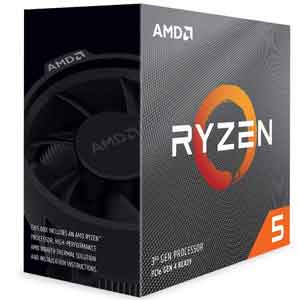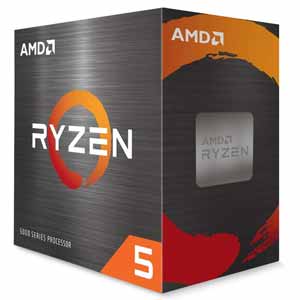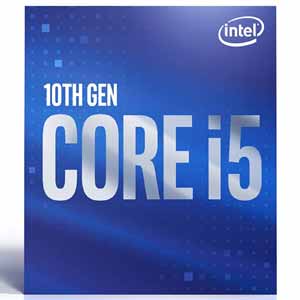Few components of a PC are as important as the processor. As the heart of the system, the CPU works the hardest on the computer. And when it comes to encoding and compression, the CPU works extra hard as it is one of the most processor-intensive tasks.
So for any kind of encoding works, you need to pick the perfect one to provide you the ultimate value for the money. But it is sometimes harder to pick the best CPU for encoding since there are many items out there, and not everyone’s requirements are the same.
In this article, we’ll guide you with our top three picks for the perfect CPU, along with some necessary information for making a good purchase.
Benefits of Using CPU for Encoding
The benefits of using a specialized CPU are numerous. Still, it is beneficial to discuss some of the major ones.
As you know, encoding via CPU is almost the same as GPU encoding since it utilizes the latter’s ability to process media. However, the difference is that when the workload of GPU goes beyond its capability, the rest of it is taken care of by the CPU itself.
It is, therefore, no wonder that people who are into transcoding, encoding, and rendering are looking for the perfect processor for their needs.
When you own a specialized CPU for video editing needs, it reduces time consumption and saves you from a lot of hassle. A good processor accelerates the video encoding speed and handles more tasks with smoothness.
Due to your computer’s better responsiveness, you can render the videos without fearing breakdown and frustration.
Our Top 3 Best CPU for Encoding Reviews
Picking the perfect CPU for encoding isn’t a very easy task. So, out of dozens of options, we’ve selected only the top three of them to make your search easier.
1. Ryzen 5 3600 Desktop Processor

You cannot make the best CPU for video encoding lists without including the Ryzen 5 3600. It is a powerful processor that revolutionized video encoding and is also considered an all-rounder due to its variety of features.
This processor has 6 cores with 12 threaded designs with unlocked multipliers. It helps the processor to allow overclocking. Additionally, the 7nm technology makes you perform more proficiently as well.
Ryzen 5 also has an enticing clock speed of 4.2 GHz. Still, it consumes less power and has a low TDM which means it won’t burn your CPU.
Speaking of TDM, Ryzen also comes with an extra Wraith Stealth cooler to keep the system calm. This 65 W cooler lets you work for hours without any delay or disturbance.
Moreover, it features a 35 MB cache the increases the overall productivity performance a lot.
Overall, its encoding performance is quite solid and hits up to 155 FPS in Handbrake, making it the best encoding CPU on a tight budget. This Ryzen 5 will surely make you a successful encoder.
Highlighted Features
- Features 3.6 GHz base frequency with 4.2 GHz max boost clock
- Comes with a 65 W Wraith Stealth cooler
- Excellent cache memory of 35 MB
- Efficient processing due to 7nm technology
2. AMD Ryzen 5 5600X Desktop Processor

One of the most powerful PC for encoding you can buy at present is the AMD Ryzen 5600X. It has the best performance in every regard with a modest price and classy appearance, at an affordable price, it delivers and a stunning blow to Intel’s mid-range lineups.
The Ryzen 5600X features the Zen 3 processor on 7nm technology. As a result, this system lets you perform the best CPU encoding and rendering.
There are other features here as well. Featuring 12 hyper threads with six cores, you can perform multiple tasks simultaneously. With a clock speed-boosting up to 4.66 GHz, this processor gives you lightning-fast speed with mind-blowing smoothness.
AMD Ryzen 5 5600X also comes with a Wraith Stealth cooler of 65 W. For the processor, it is enough even under full load.
Another important feature that most people tend to forget about is the cache memory which is 35 MB in with this processor. All these features make 5600X the best choice of CPU for all encoders and decoders alike.
Highlighted features
- Strongest performance with high productivity
- Low TDP prevents CPU heating
- Compatible with AM4 sockets
- Strong single and multi-threaded
3. Intel Core i5-10400 Desktop Processor

Although not the flagship processor of Intel, the i5-10400 is nothing short of one with all its features. Even though it lacks in overclock-ability, like the other two models on our list, it makes up for it with its tenacity.
It will be the best pick for you if you already own an LGA 1200 motherboard and need a GPU. This processor features 6 cores and 12 threads, as our other two items. But unlike them, it represents the low end of midrange options for Intel. Still, it can compete well against AMD’s Ryzen 5 5600X quite well.
The chip’s Hyper-Threading is a big step from the previous six-by-six core-thread ratio to keep Intel viable against AMD’s Ryzen series. Intel Core 10400 is an absolute beast when it comes to multi-threaded workloads, especially if you consider the price.
It has a 12 MB of shared L3 cache, which is significantly lower than our AMD counterparts.
On a positive note, it offers something extra that AMD counterparts don’t. Intel’s 10400 comes with an integrated graphics processor UHD Graphics 630.
The processor operates at between 2.9 GHz and 4.3 GHz with a low base clock since the TDP rating is just 65 watts. Besides, it has a decent frame rate and features a workable bundled cooler. Although it is better to buy a better one extra.
Highlighted features
- Has a very low TDP
- Features an integrated graphics processor
- Frame rate is quite good
- Comet Lake microarchitecture enables Hyper-Threading
Things to Consider Before Buying CPU for Encoding
There are a few things to consider before buying the best CPU for coding. We’ll explain the most important of them so that you can make an informed purchase decision.
Deciding Between Core Count and Clock Speed
One of the most important things to consider for choosing a great CPU is the clocking speed. the programming will be better with a higher clocking speed. But the core count is also another necessary factor as a processor with less than 6 cannot perform your rendering tasks.
So here comes the confusion, which one to prefer over the other? Well, the truth of the matter is both clocking speed, and core counts matter a lot when it comes to video encoding and rendering.
But the preferability of one over the other depends upon your choice of encoding software. You need to know whether your encoding software requires more cores or faster cores.
When you’re confused about which to prefer, consider that having more cores with less speed means that you can work on many applications and programs simultaneously. But each of them might run slow.
On the other hand, having a higher clock speed with less core count will mean you can perform a lesser number of applications with considerably higher speed in each.
Therefore, always try to pick a CPU that offers more than six cores and multi-threading features.
Desktop CPU or Mobile Processor?
There are options for you to pick mobile processors for your video encoding works. While the major characteristics of both the desktop and mobile processors are the same, there are some minute differences.
Mobile processors tend to conserve more electricity since laptops greatly depend on batteries. As a result, they also work a bit slower than desktops. Besides, the heat dissipation is also less in mobile processors.
On the other hand, desktop CPUs don’t need to conserve energy and can work to their full potential. They have more cores and are faster. But this doesn’t mean every desktop CPUs are better in every way than mobile ones. Some mobile processors could give desktop CPUs a run for their money! But when you want to have a compact system, mobile processors are the way to go. Otherwise, desktop CPUs offer a better deal.
Cache Memory
Although not a component of the CPU itself, the cache chip is located very close to the processor. It is a temporary storage site that helps you in quick data retrieval. A larger cache allows you to save more for swifter access. Therefore, go for a minimum of 8 MB cache memory for faster works.
Cooler
We already mentioned the heat dissipation of processors. In reality, CPUs generate a lot of heat while working on tough projects. That’s why you need a suitable cooler to help dissipate the heat properly.
Most buyers tend to overlook this feature, but when your processor has a higher TDM, it will require a better cooling system. If the CPU is 65W, it will need a cooler that can manage a 65W processor.
Frequently asked questions
1. Between AMD and Intel, which one is better?
It is not easy to pick either of them over others as both have their fair share of awesome features. Almost all Intel processors feature iGPU, while AMDs need to be connected with a separate GPU.
For single-core performances such as laptops, Intel is a better option. However, AMD beats Intel in less heat emission, power consumption, and affordability.
So it all depends on which features are more important to your tasks.
2. How’d I know my processor won’t crash while encoding?
One needs to know the reasons why processors crash. CPUs generally crash when they get overwhelmed with processing tasks that are coming close to their capabilities’ limits. Thus overheating results leading to hardware malfunction, corruption, and ultimately crashing.
That’s why the core performance of each core is very important. Old CPUs typically don’t have great-performing cores. There is various software available to evaluate whether your processor can handle video encoding or not. You can use them as well.
3. Is the i7 processor better than i5?
Although i7 usually performs better, some newer models of i5 can outperform the old i7. Whatever processor you pick, it has to have a faster base clock, larger cache, and more cores.
4. How many cores are ideal for encoding?
For encoding purposes, the number of cores that is ideal for a processor is at least six, but the more is better.
Final Words
Picking the best CPU for encoding depends on a few different things, and all three of our picks outperform most other CPUs for this task. It is better, however, to look up video encoding benchmarks to see which CPU performs best for you.
Hopefully, this article has enough necessary information for your needs. Happy encoding!

